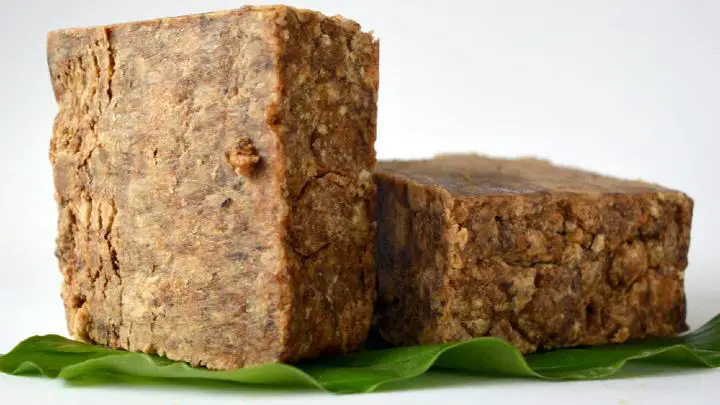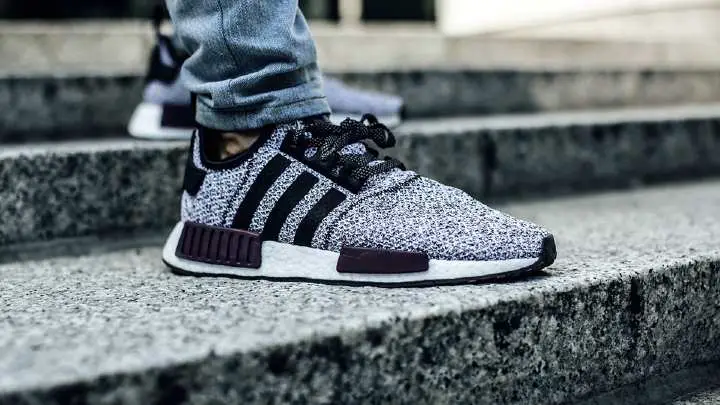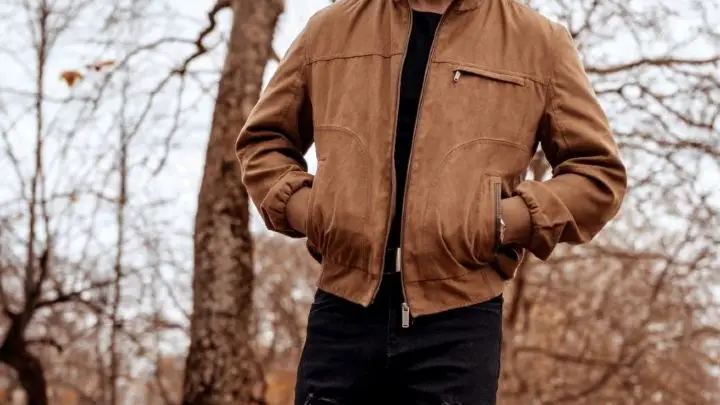African black soap is not new in the beauty world. As world beauty secrets transfer and spread, news of local and traditional soap has also gained traction. The soap is touted to be a wonder ball that does almost anything. So what makes African black soaps stand out?
This is a question a curious mind like yourself is asking, which, of course, is why you are here. Maybe there’s a secret ingredient that turns the skin around or knows what your skin needs.
The soap is known to treat skin conditions such as eczema, rosacea, psoriasis, acne, hyperpigmentation, and other skin conditions.
The centuries-old soap is a common fallback to Africans when they need skin rejuvenation. With this, your curiosity radar will be left standing when it comes to African black soap. Well, you can find here what makes the soap special.
I will be delving into what’s in African black soap that makes it special to old and new users. Read on to find out what is in African black soap.
What Is African Black Soap?
African black soap is a natural soap with its root in Western Africa. Commonly known as ose dudu, anago samina, anago soap, or alata samina in popular tribes in western Africa, the soap contains skin-exfoliating properties that protect skin health.
The soap is responsible for improving skin tone, texture, and softness. However, it has a drying effect on the skin. Consequently, dry skin is not fund of it. Nonetheless, it is a suitable soap for most skin concerns that need addressing.
The brownish marble soap is all-natural and nourishing to the skin. This is why it’s very common and highly rated for skin health. Furthermore, it is versatile. It can be used in different forms and parts of the body (including as shampoo for hair).
What sets the soap apart is the different forms it comes in, which also means it has different recipes. Ultimately, there are base products that can be found in the soap.
SEE: African Black Soap: Everything You Need to Know About It
What Is in African Black Soap?
African black soaps are made with natural ingredients gotten from plants and trees. However, these ingredients can be varying depending on the maker or recipe. But these ingredients have some common elements, which makes the soap do what it does.
If you want to know what goes in your African black soap before getting one, here is a list of the essential ingredients in black soap.
1. Cocoa powder/pod
Rich in antioxidants, cocoa helps to treat free radicals, reduce inflammation and soften the skin. Your skin cell also speeds up reproduction, exfoliating the skin to rapid skin cell turnover. The powder is added while the cocoa pod is roasted.
2. Palm oil
This is popular in West Africa, especially in cuisines and home cooking. Palm oil, gotten from the kernel seeds is rich in vitamin E. This antioxidant helps to protect and enrich the skin. It prevents free radicals from popping on the skin.
3. Cocoa butter
This ingredient is rich in fats. Gotten from the cocoa bean, it helps to moisturize the skin. Furthermore, it is rich in vitamins A and E, which help to reduce the effects of damage on the skin.
The butter is great for improving the smooth texture of the skin. You can use it to keep your skin supple and bright.
4. Palm kernel oil
This kernel extract helps the skin stay smooth. In addition, it contains antibacterial properties that remove unwanted attachments from the skin. The fruit extract with its lauric acid helps the skin promotes skin rejuvenation and cleansing.
5. Plantain skin
This part of this plant is rich in vitamins A and E and iron to help build the skin lipid barrier, improving the skin texture. Furthermore, the ingredient boosts collagen production, which improves skin cell turnover and the reproduction of new cells.
6. Shea butter
Shea butter helps to moisturize the skin. The butter is famous for its antioxidants and anti-inflammatory properties that treat skin conditions like eczema, contact dermatitis, and scars.
Shea butter also promotes the renewing of new skin cells, keeping the skin smooth and supple. It reduces the toxins on the skin with its antioxidant properties.
7. Coconut oil
Coconut oil is an emollient that strengthens and protects the lipid barrier. The oil is effective in driving off free radicals with its antioxidants and moisturizing properties. Furthermore, it improves the dryness of your skin by boosting moisture on the skin.
8. Camwood
This ingredient may or may not be present in the soap. However, it contains antioxidants that remove toxic materials and regulate blood circulation in the skin.
Additionally, the ingredient helps to reduce wrinkles, firm the skin, and improve skin elasticity.
9. Water
Water is essential in any soap-making process. It hydrates the skin and keeps it balanced. The water also works as a solvent to dissolve the ingredients together during the saponification process.
Other added ingredients include:
10. Sunflower oil
This non-comedogenic oil helps to unclog and even out your skin tone. The oil also helps to build the skin’s lipid barrier by protecting it with its antioxidant properties. It also hydrates the skin, providing room for skin regeneration.
Sunflower oil is added to African black soap to reduce acne-causing bacteria on the skin.
11. Essential oils
Essential oils provide aromatherapy and skin therapy to users. When added to African black soap, the oils purify, improving the antioxidant level and strengthening the lipid barrier.
Essential oils like peppermint, lemongrass, and tea tree oil are popular oils used to enhance the efficacy of African black soap.
12. Aloe vera
Aloe Vera is a humectant that draws moisture to the skin. Therefore, aloe vera in African black soap helps to hydrate and soften the skin. Likewise, the ingredient enriches the skin, helping to brighten the skin tone.
Furthermore, it helps to reduce the appearance of acne and wrinkles on the skin.
13. Jojoba oil
Jojoba is a carrier oil that contains antioxidants that help to reduce free radical attack on the skin. Additionally, it helps to control the sebum on the skin by mimicking the natural oil. Jojoba oil closely resembles sebum, as a result, it’s easy to slip into the skin, moisturizing and improving skin texture.
SEE: 10 Best African Black Soap – Treat Your Skin Issues, Get a Flawless Skin
What Is African Black Soap Good For?
African black soap is versatile in treating the skin. It has the following benefits to the skin.
1. It exfoliates the skin
Black soap contains skin ingredients roasted to ash. This ash is used to exfoliate the skin, revealing a new skin surface. This process, as a result, exfoliates dead skin cells from the skin.
2. Reduces acne
The soap also helps to reduce acne breakouts on the skin. The soap is oil-controlling. Moreover, it contains antibacterial properties that reduce bacteria on the face.
3. Calms the skin
Another reason to add African black soap to your skincare routine is for its soothing features. The soap contains anti-inflammatory and antioxidant properties that help to reduce skin irritations and redness.
4. Improves skin tone
African black soap helps to improve skin tone. It evens out your complexion, giving your skin an overall bright glow. You can use the soap to reduce discoloration and hyperpigmentation.
Can You Replace Ingredients in African Black Soap?
Yes, you can. You can replace some ingredients in African black soaps with other special ingredients.
However, not all ingredients. For instance, cocoa pods/powder, plantain leaves and skin, palm kernel oil, palm oil, and shea butter are essential in making black soap.
These ingredients are roasted, giving the soap its marble brown and ashy color. Nonetheless, you can switch coconut oil with other types of oil like jojoba oil or argan oil. You can also switch the cocoa butter for other types of moisturizing butter.
Does African Black Soap Lighten Skin?
African black soap can lighten your skin. Nonetheless, this depends on the ingredients present in the soap. While black soaps generally brighten your skin, giving you a natural glow, lightening is only possible if it has ingredients like turmeric or other skin-lightening agents.
How to Use African Black Soap
To use black soap on your body, you can choose between a bar, raw, or liquid type of soap. Follow these simple steps in using the black soap.
- Dampen your skin.
- Rub a bar or cut black soap gently between your palms until it lathers.
- Apply lather to skin. Avoid using the soap directly on your skin. Pair with an exfoliating brush to remove dead skin cells.
- Then massage the lather on your face in circular motion.
- Rinse off the lather with water.
- Moisturize your skin after shower.
Note: For hair, use the liquid or bar form of the soap. Lather it in a bowl of water, then apply to hair. Applying soap directly to hair may cause residues to settle on your scalp or between your hair, which would increase grease and dirt.
SEE: How to Use African Black Soap- Save Your Skin With These Tips
African Black Soap Side Effects
The common side effects you will get from using African black soap include:
- Irritation
- Dry skin
- Burning sensation
- Stinging
- Breakouts
Consequently, patch test the soap on a conspicuous part of your skin before using it. However, the soap goes through a process of purging as your skin gets used to it. If these side effects do not stop after two to four weeks, discontinue immediately.
FAQs
Is it bad to use African black soap every day?
This depends on your skin type. African black soap has a drying effect on the skin after use. Therefore, the soap is perfect for oily and acne-prone skin types. However, dry and sensitive skin should use the soap every other day to exfoliate the skin.
What is the color of African black soap?
Marble brown or grey. Your African black soap should come in a marble brown color. This is due to the ashy and buttery mix.
African black soap ingredients never fully blend to form a single color. Therefore, look out for products often in marble.
Can you leave African black soap overnight?
No, you cannot. Raw African black soaps melt easily, and when exposed to air, a whitish film covers the soap. This does not mean it has gone bad. Nonetheless, leave your soap in a container, and do not use the full lump at once. Cut into small cubes.
What skin type is African black soap good for?
All skin types. African black soaps suit all skin types to varying degrees. While oily and acne-prone skin gets the best from the soap, dry and sensitive skin can also use the soap but with precautions. Furthermore, the frequency of use will be lesser than the others.
Conclusion
African black soaps are popular for their unique properties that provide solutions to many skin concerns. Therefore, people wonder what is in them. The soaps only use natural ingredients that would hydrate and exfoliate the skin. Consequently, you do not need to worry about chemicals getting to your skin.
Furthermore, it expertly treats the skin, leaving only clear healthy skin. If you need a wonder solution to suit any skin condition or issues, look for answers in African black soaps. They truly do wonders to the skin.
Thanks for reading.
Loved this article? Get more beauty and skincare guides here on Africana Fashion.







